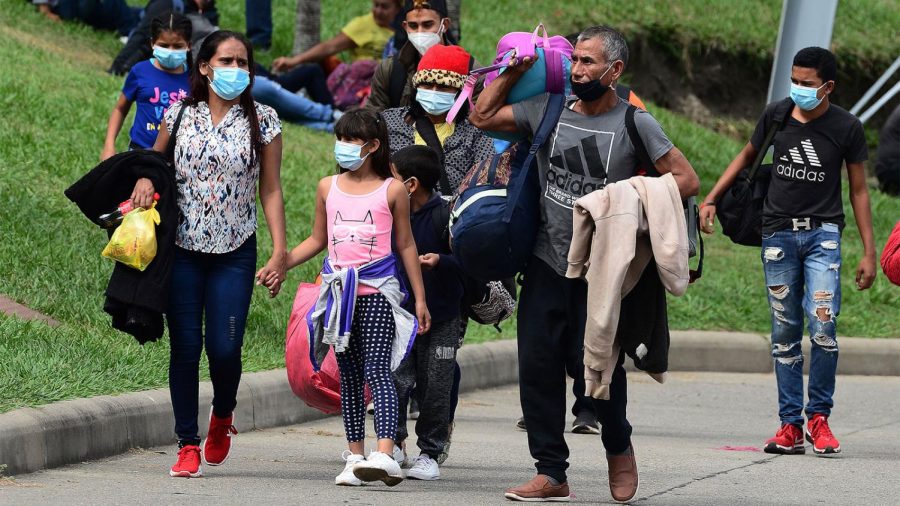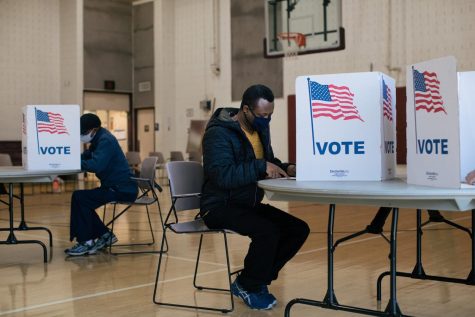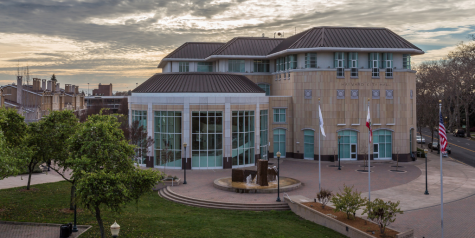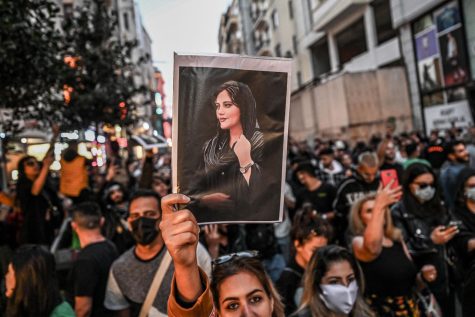Crisis at the Border
October 6, 2021
Border Control Harassment of Climate Refugees
In 2010, a devastating M7.0 earthquake hit the small island nation of Haiti, since then, Haiti had been hit multiple times with disaster after disaster, whether it be natural, political, or otherwise. This year alone, Haiti faced a presidential assassination, Tropical Storm Grace, and another massive M7.2 earthquake. These multitudes of disasters are unfortunately commonplace for Haiti.
The 2010 earthquake forced thousands of people to evacuate and flee to South American nations, like Brazil and Chile. Jobs have been disappearing as the economies of these countries change leading to an influx of Haitian migrants leaving their new homes in search of a better life. The election of President Biden in Nov. 2020 made it so many believed they would be safe in the United States and able to find work here.
This was in large part due to the president restoring protected status for Haitians, yet this was only meant to affect those already living and working in the U.S., not all Haitian migrants. However, what we witnessed on Sept. 19 paints a different picture of American immigration politics, not a nation willing to accept refugees and displaced peoples, but one willing to attack migrants while on horseback.
Dr. Linda Ivey, a Professor of the Department of History at California State University, East Bay, stated that there have long been concerns with the consistency of U.S. immigration policy. She discussed that Haiti is a good example of “the way in which politics, and arguably racism, play a dastardly role in the survival of global refugees.”
She went on to say that the 1980s saw the U.S. favoring Cuban refugees over Haitian refugees for two likely reasons, the governments in which they fled and the color of their skin.
“In the 1980s, both countries experienced terrible political turmoil and could arguably claim persecution. The U.S. was much more favorable to the Cubans, they were escaping a left-wing communist government, whereas the Haitians were escaping a right-wing dictator and in the 80s, the U.S. was more friendly with the right-wing governments in Central America than with the left,” she said.
This coupled with the fact that Haitians tend to be darker complected than most Cubans, is hard to argue the racist tendencies of American policy towards immigration.
Now, it must be understood that the refugee status is one that requires certain specifics to be met. Environmentally displaced peoples, is not a status that one call themselves. Only if one can prove that they would be persecuted and likely killed can they claim the status of a refugee and seek asylum. The current Haitian migrants that are fleeing to the U.S. are environmentally displaced, yet not persecuted, so therefore cannot seek asylum here in the U.S.
One of the promises of Biden was to “finish the work of building a fair and humane immigration system–restoring the progress Trump has cruelly undone and taking it further,” yet, he restored and maintained many Trump-era policies focused on safeguarding the border, particularly based on stopping the spread of COVID-19.
It is important, with the number and severity of climate-related disasters the world is facing today, that the U.N. help establish an international definition for environmentally displaced peoples and ensure that nations like the U.S. will promise to take in these climate refugees.
















